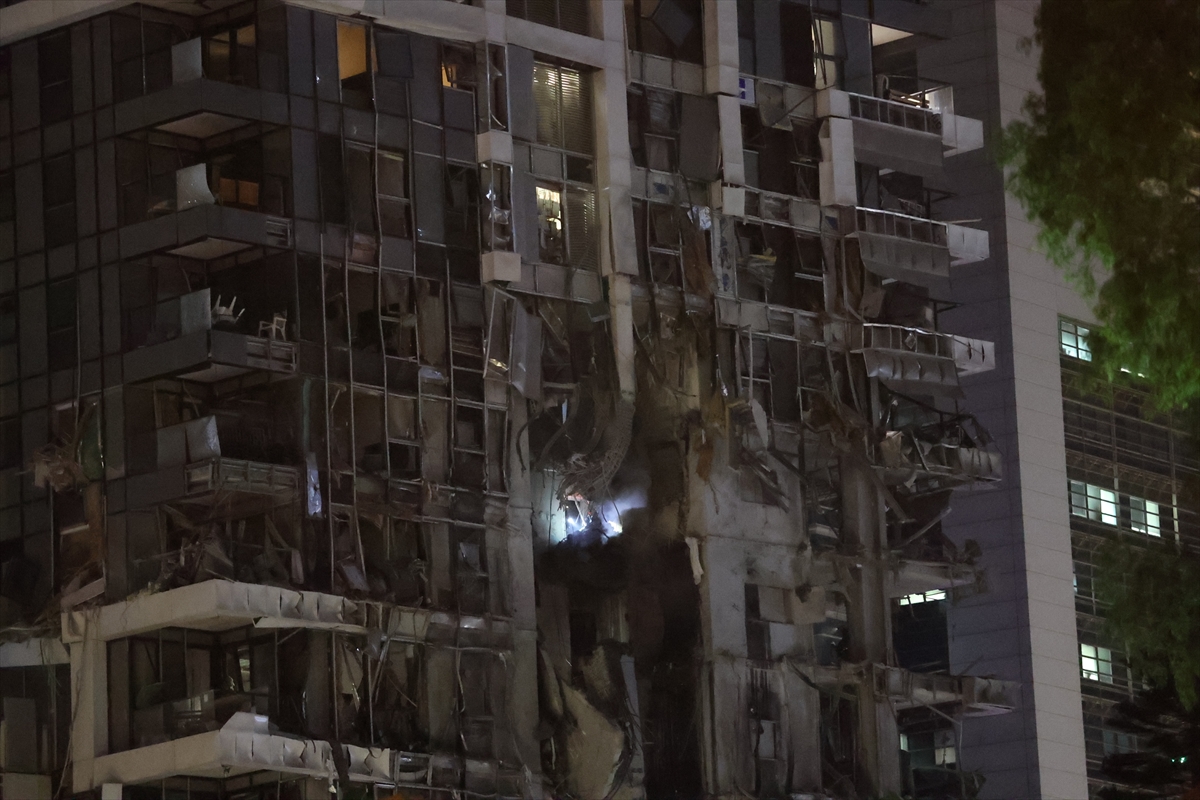
By Nadine Osman
London (The Muslim News): Late Friday night, Iran launched a significant retaliatory missile attack on Israel, escalating tensions across the volatile Middle East region. The US confirmed its involvement in assisting Israel by intercepting many of the incoming Iranian missiles. An American official told Anadolu News Agency, “I can confirm that the US is assisting in shooting down missiles targeting Israel.”
Tehran’s missile assault, named Operation True Promise III, targeted multiple locations across Israel, injuring at least 40 people, including two critically, according to Israeli news outlet Haaretz. Avichay Adraee, the Israeli military’s Arabic-language spokesperson, reported that Iran fired fewer than 100 missiles during the attack, with most missiles intercepted by Israel’s Iron Dome defence system or falling short of their targets.
This missile strike came as a forceful retaliation following earlier Israeli airstrikes on Iranian nuclear and missile facilities in Tehran and other locations. These strikes reportedly killed senior Iranian military commanders and scientists. Iran had vowed a severe response. Tehran’s military further claimed to have downed two Israeli fighter jets involved in the air raids and detained an Israeli female pilot, according to the Iranian Tasnim news agency. Tasnim also reported that an Israeli unmanned aerial vehicle was shot down over Qom. However, Israel dismissed these claims as “completely baseless,” accusing Iranian media of fabricating information.
As the conflict intensifies, the legality of Israel’s military strikes has come under serious scrutiny by international legal authorities.
Analyst Paul R. Pillar, a former CIA intelligence officer and expert in Middle Eastern affairs and US foreign policy, described the attacks as “naked aggression,” while Russia’s Ministry of Foreign Affairs condemned Israel’s operations as “unprovoked” and in violation of international norms.
Ben Saul, a UN international law expert, described Israel’s airstrikes as a “prohibited use of force” under the UN Charter and warned they could constitute “the international crime of aggression.”
The International Commission of Jurists also condemned the strikes as “grave violations” of international law, cautioning such actions risk further destabilising the already fragile Middle East region.
Adding to the critical legal perspective, author, and Middle East expert Moustafa Bayoumi characterised the Israeli strikes as “unauthorised and illegal.”
Legal scholars emphasise that military action without explicit UN Security Council approval can only be lawful if responding to an imminent and unavoidable threat — a threshold many question Israel’s strikes met.
Meanwhile, the International Committee of the Red Cross stressed the importance of adhering to the principles of distinction and proportionality in armed conflict to minimise civilian casualties.
On the diplomatic front, French President Emmanuel Macron declared France’s readiness to defend Israel if Iran escalates attacks further. While ruling out direct French involvement in offensive military operations, Macron affirmed support for protective efforts and urged all parties to exercise restraint to prevent broader regional destabilisation. Macron also highlighted the urgent need for diplomatic resolution of Iran’s nuclear programme, warning that Iran’s nuclear ambitions pose an existential threat to regional and global security.
Similarly, British Prime Minister Keir Starmer, during a phone call with Israeli Prime Minister Benjamin Netanyahu, reiterated Israel’s right to self-defence but also called for de-escalation and diplomatic solutions to preserve stability in the Middle East.
Following the Israeli strikes, Iran’s Atomic Energy Organization reported nuclear contamination at its Natanz facility but insisted the contamination was contained onsite and posed no wider risk.
Iranian local media estimate that Israeli airstrikes across Tehran, Tabriz, and East Azerbaijan Province have caused at least 104 fatalities and 376 injuries, mostly civilians.
Meanwhile, US President Donald Trump urged Tehran to cease its bombing campaign and return to nuclear negotiations. In response, Iran’s Supreme Leader Ayatollah Ali Khamenei warned Israel to “expect severe punishment” for its attacks, condemning the killings of top Iranian military commanders and scientists as a “crime.”
[Photo: A view of the damage after one of the missiles fired by Iran in retaliation for the attacks hit very close to the Ministry of Defense in Tel Aviv, Israel on June 13, 2025. Seven people were injured in the attack, two seriously and two moderately. Photojournalist: Saeed Qaq/AA]